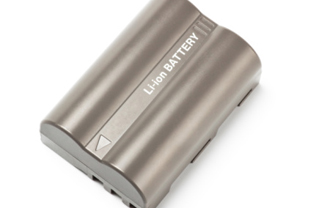
Lithium-ion battery packs are expensive, so if you want to make yours to last longer, here are some things to keep in mind:
- Lithium ion chemistry prefers partial discharge to deep discharge, so it’s best to avoid taking the battery all the way down to zero. Since lithium-ion chemistry does not have a “memory”, you do not harm the battery pack with a partial discharge. If the voltage of a lithium-ion cell drops below a certain level, it’s ruined.
- Lithium-ion batteries age. They only last two to three years, even if they are sitting on a shelf unused. So do not “avoid using” the battery with the thought that the battery pack will last five years. It won’t. Also, if you are buying a new battery pack, you want to make sure it really is new. If it has been sitting on a shelf in the store for a year, it won’t last very long. Manufacturing dates are important.
- Avoid heat, which degrades the batteries.
Exploding Batteries
Now that we know how to keep lithium-ion batteries working longer, let’s look at why they can explode.
If the battery gets hot enough to ignite the electrolyte, you are going to get a fire. There are video clips and photos on the Web that show just how serious these fires can be. The CBC article,”Summer of the Exploding Laptop,” rounds up several of these incidents.
When a fire like this happens, it is usually caused by an internal short in the battery. Recall from the previous section that lithium-ion cells contain a separator sheet that keeps the positive and negative electrodes apart. If that sheet gets punctured and the electrodes touch, the battery heats up very quickly. You may have experienced the kind of heat a battery can produce if you have ever put a normal 9-volt battery in your pocket. If a coin shorts across the two terminals, the battery gets quite hot.
In a separator failure, that same kind of short happens inside the lithium-ion battery. Since lithium-ion batteries are so energetic, they get very hot. The heat causes the battery to vent the organic solvent used as an electrolyte, and the heat (or a nearby spark) can light it. Once that happens inside one of the cells, the heat of the fire cascades to the other cells and the whole pack goes up in flames.
It is important to note that fires are very rare. Still, it only takes a couple of fires and a little media coverage to prompt a recall.
To learn more about lithium-ion batteries and related topics, check out the links below.
Related Articles
More Great Links
Sources
- “Dell laptop explodes at Japanese conference.” The Inquirer, June 21, 2006. http://www.theinquirer.net/default.aspx?article=32550
- “Energy Density.” Everything2.com. https://everything2.com/title/energy+density?searchy=search
- Goodwins, Rupert. “Inside a notebook battery pack.” ZDNet.co.uk, Aug. 17, 2006. http://reviews.zdnet.co.uk/0,39023100,39281143,00.htm
- “How to prolong lithium-based batteries.” Battery University. http://www.batteryuniversity.com/parttwo-34.htm
- “How to rebuild a Li-Ion battery pack.” Electronics-Lab.com. http://www.electronics-lab.com/articles/Li_Ion_reconstruct/index.html
- Kanellos, Michael. “Can anything tame the battery flames?” News.com, Aug. 15, 2006. http://news.com.com/Can+anything+tame+the+battery+flames/2100-11398_3-6105924.html
- “Lithium-ion Rechargeable Batteries.” GPBatteries. http://www.gpbatteries.com/pdf/Lithium_Rechargeable.pdf
- Zinc Matrix Power. http://www.zmp.com/news.html
